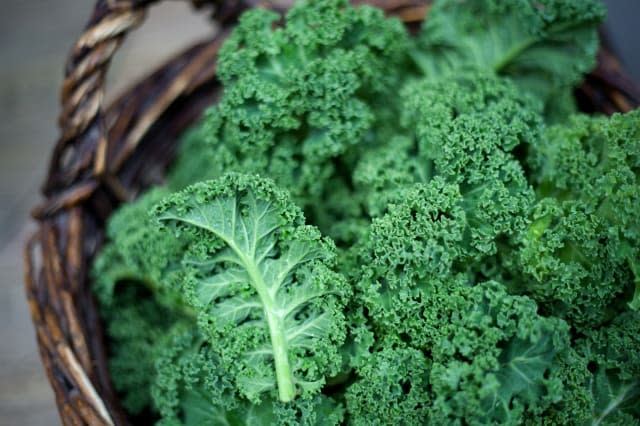Five winter superfoods you need

You might not fancy a salad on cold winter days, but there are lots of health-boosting vegetables you can enjoy in comforting curries, and filling casseroles and soups. Here are five winter superfoods you should be eating right now...
See also: Seven best superfoods for women over 50
See also: Six best superfoods for men over 50
1. Kale
Winter is the season of kale – a fibrous leafy green that's a veritable powerhouse of vitamins and minerals. Kale is packed with vitamins A, C, and K, which can help ward off cancer, and antioxidants, including lutein which promotes good eye and skin health. The leafy green is also a good source of iron and calcium.
For maximum nutritional benefit, eat it soon after buying and steam or light fry it with a little olive oil and garlic. It's also a great choice if you're trying to lose weight, as the fibre will help to fill you up.
Not sure what to cook with kale? Try these eight warming winter recipes, including white bean, kale, and sausage ragout, and North African chickpea and kale soup.
2. Pumpkins
Another autumn/winter favourite, pumpkin is rich in vitamin A and carotenoids, which help to promote eye health and good version, as well as keeping your immune system strong.
Roast them in the oven for a sweet caramelised flavour, and add to casseroles and soups, or mash them in with spuds to boost your nutrient intake. Don't forget pumpkin seeds either. Roast them, or buy them ready dried, and eat as a snack. Thanks to their protein and iron content, they will give you an energy boost if you tend to feel tired during winter. Pumpkin seeds are also a good source of tryptophan, an amino acid which helps boosts the production of feel-good serotonin, as well as being rich in mono-unsaturated fatty acids, which are good for your heart.
3. Ginger
You might not think of ginger as a vegetable, but the root veggie boasts impressive medicinal qualities and can help to keep your immune system in great shape for winter.
Garlic - and other allium vegetables, such as onions, leeks and chives - have been shown to have a powerful anti-inflammatory effect. Eating them regularly may help prevent and even slow the progression of osteoarthritis, according to researchers from King's College London and the University of East Anglia. Allium vegetables contain a compound that blocks the enzymes that eat away at the cartilage, protecting joints from damage.
If you don't like the taste of garlic, try taking an odourless garlic supplement.
4. Sweet potatoes
If you tend to feel down in the dark days of winter, what you eat can make a big difference. Full of fibre and packed with vitamins and minerals, sweet potatoes are a great source of magnesium, which is known to help improve the body's response to stress and ease feelings of irritability and anxiety.
They also contain vitamins C and B6, and beta-carotene – a powerful antioxidant that converts to vitamin A in the body. Try cutting them into wedges, spraying with a little oil and baking in the oven. So much healthier and tastier than chips!
5. Brussels sprouts
A traditional Christmas dish, Brussels sprouts taste fantastic, especially roasted. Brussels contain more than 100 percent of the recommended daily intake of vitamins C and K, as well as good amounts of vitamin B6, folate, manganese, and iron. Like cauliflower and broccoli, the cruciferous vegetable has the ability to lower cholesterol and fight inflammation. So pile your plate high!



